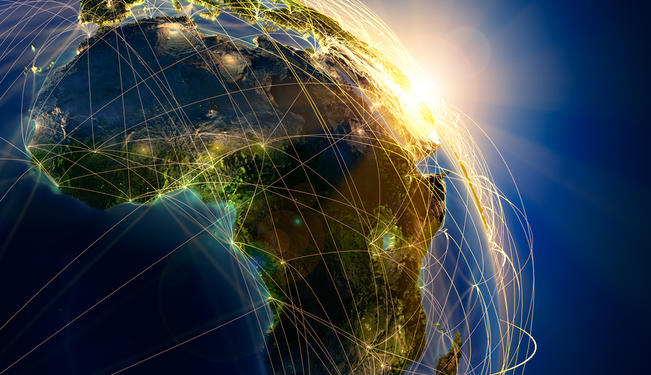Fair Observer presents Conversations on Google+ Hangout.
Old habits die hard. The United States still seems to think of Africa through the prism of aid instead of trade. US President Barack Obama has announced a new $7 billion "Power Africa" plan and visited sub-Saharan Africa to promote "world health initiatives." Whilst seemingly innocuous, it seems the US is still seeking to bring light to Africa while the Chinese just want to do business: they are building factories, buying land, and mining minerals with a ferocity that was once associated with the Europeans.
Have the Chinese overreached? Is the stage set for the US to regain influence in Africa? Or are we going to see a scramble for Africa reminiscent of former times? Or is Africa finally a power in its own right and will it play off these two giants to negotiate the best deals it can? Or is the very idea of Africa as a cohesive entity a false one, given the diversity, disparity and divergence in this continent of a billion people?
Fair Observer presents Conversations on Google+ Hangout, where we discuss Obama's recent visit to Africa and what it portends. It casts a bird's eye view over the legacy of the past, the developments over the last two decades, and the trends that we can extrapolate into the future.
Who is on the panel?
-
Solomon Appiah (@SolomonAppiah5), DAAD public policy and good governance fellow
-
Claire Price (@ClaireJPrice), British journalist and former BBC reporter and producer
-
Kenneth Oriwa, senior finance professional in New York
The Google+ Hangout is moderated by Atul Singh (@atulabhas), founder & editor-in-chief at Fair Observer.
The discussion took place on July 26.
Image: Copyright © Shutterstock. All Rights Reserved
Support Fair Observer
We rely on your support for our independence, diversity and quality.
For more than 10 years, Fair Observer has been free, fair and independent. No billionaire owns us, no advertisers control us. We are a reader-supported nonprofit. Unlike many other publications, we keep our content free for readers regardless of where they live or whether they can afford to pay. We have no paywalls and no ads.
In the post-truth era of fake news, echo chambers and filter bubbles, we publish a plurality of perspectives from around the world. Anyone can publish with us, but everyone goes through a rigorous editorial process. So, you get fact-checked, well-reasoned content instead of noise.
We publish 2,500+ voices from 90+ countries. We also conduct education and training programs
on subjects ranging from digital media and journalism to writing and critical thinking. This
doesn’t come cheap. Servers, editors, trainers and web developers cost
money.
Please consider supporting us on a regular basis as a recurring donor or a
sustaining member.
Will you support FO’s journalism?
We rely on your support for our independence, diversity and quality.







Comment